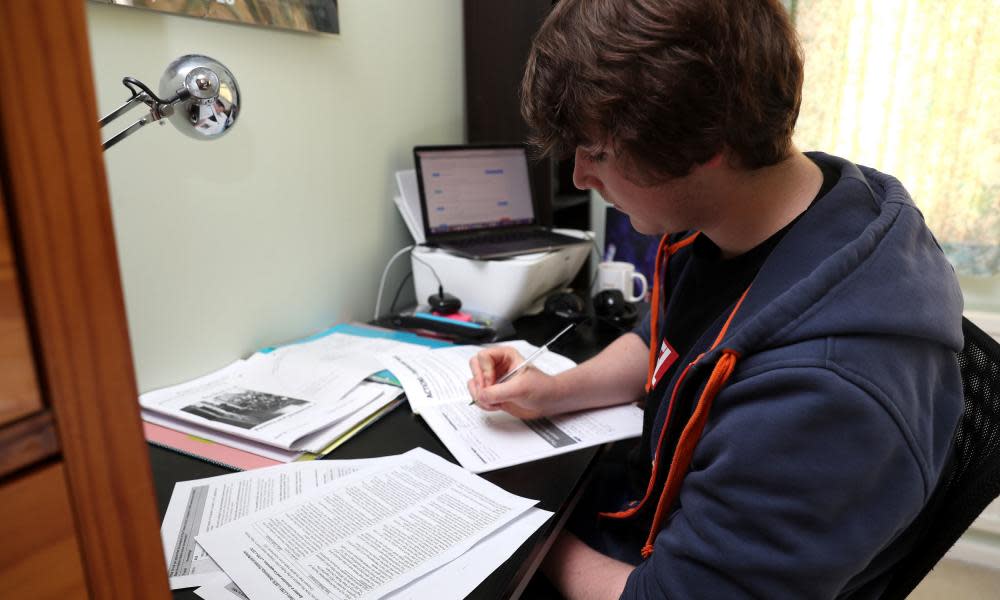Social mobility study to assess lockdown effect on teenagers in England

Disruption to the lives and careers of 16-year-olds following the Covid-19 pandemic is to be the subject of a government-funded study that tracks 10,000 children in England into adulthood.
The research will establish whether pupils achieve lower grades at school and how this might affect their decision to go to university and the jobs they get. It will also look at the impact on their wellbeing, and whether those from poorer backgrounds are held back more than their wealthier peers.
Jake Anders, the University College London (UCL) academic leading the study, said: “Covid-19 and its aftermath are a generation-defining challenge – the disruption to education will have long-lasting effects on young people’s life chances, with the most disadvantaged children facing the largest effects.
“The Covid Social Mobility & Opportunities (Cosmo) study will provide vital new evidence on these unfair consequences, allowing us to plan how best to respond to this challenge.”
Peter Lampl, the founder and chair of the Sutton Trust, said the social mobility charity’s research indicated that the pandemic had already had an “immediate and wide-ranging impact” on young people from lower-income backgrounds who have struggled with online learning because of a lack of access to computers and internet, lower confidence and less parental support.
Elif, a year 11 pupil in London, said he had had to give up his dream of studying for an apprenticeship after teachers warned him that placements had been cancelled because of the pandemic. He now plans to take a vocational course or BTec instead, which won’t allow him to earn a salary while he gains a qualification.
“Personally, the school closures were a terrible experience. Missing out on in-person lessons has definitely affected me academically and my plans for the future,” he said.
“I’m anxious about our GCSE grades this year. I would rather pass or fail based on my own exam work than teacher-based assessments, which I am finding much more stressful.”
The researchers from UCL and the Sutton Trust will receive £4.6m in government funding from UK Research and Innovation for the study, which will report initially after two years, then follow up on the cohort into their adult lives.
A representative selection of pupils will be invited to join the study by letter this September. They will be asked to complete questionnaires and interviews about their experiences and attitudes towards home-schooling and cancelled examinations, as well as the impact of the pandemic on their health and wellbeing, and on their future education and career aspirations.

 Yahoo Movies
Yahoo Movies 
